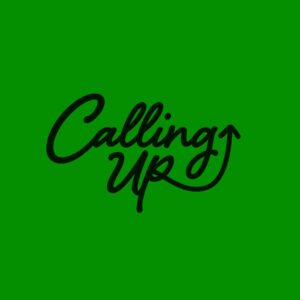The Calling Up Justice Practice is based on Claudia Alick’s original vision on Calling Out, Calling In, and Calling Up.
The concepts of Calling Up are being developed in collaboration with groups devising performances of justice on stage, online and in real life. In this video we review the vocabulary of CALL-OUT, CALL-IN, CALLING DOWN and CALLING UP.
The concepts of Calling Up are being developed in collaboration with groups devising performances of justice. The ideas below are informed by the information sources shared in the links below and justice leaders nationally. Calling-Out/Calling-In are value neutral terms. Both can be done in healthy ways or toxic ways.
CALLING OUT: The act of publicly criticizing people for violating accepted behavioral standards.
CALLING IN: The act of privately criticizing people for violating accepted behavioral standards.
CALLING DOWN: The practice of publicly and/or privately
dismissing/denying/obfuscating these abusive/harassing behaviors and participating processes that cultivate and support future negative behavior impact.
CALLING UP: The practice of publicly and/or privately acknowledging
abusive/harassing/oppressive behaviors and participating in transformative justice processes to cultivate future positive behaviors and impacts.
The toxic CALL OUT can become a performance of your personal righteousness instead of a way to encourage healthier behaviors in others in our community. It can be done to support CALLING DOWN and silencing others speaking out against injustice. In healthy practice the productive CALL-OUT is often necessary. When we witness performances of injustice and do not disrupt them we are communicating that injustice and oppression are accepted behavior. The CALL OUT can feel awkward because it is interrupting and disrupting. Remember the person doing the oppressive act is the one making the moment uncomfortable. Ignoring a problem does not solve it.
The toxic CALL IN can become more about caretaking the feelings of the person doing oppressive behavior or used to avoid publically creating a culture of accountability and restorative justice. CALLING IN at its best helps the recipient of the critique to avoid defensive public reactions that causes more harm. Ngọc Loan Trần in Black Girl Dangerous provides a positive frame “Calling in as a practice of loving each other enough to allow each other to make mistakes, a practice of loving ourselves enough to know that what we’re trying to do here is a radical unlearning of everything we have been configured to believe is normal.”
Successful CALLING UP requires the person being Called Out or Called In to participate positively in the process. CALLING UP requires a culture that supports speaking up, accountability, active responsibility, and daily practice with a belief in the possibility for change from those you are engaging with. CALLING UP should be transformative for yourself and those around you.

